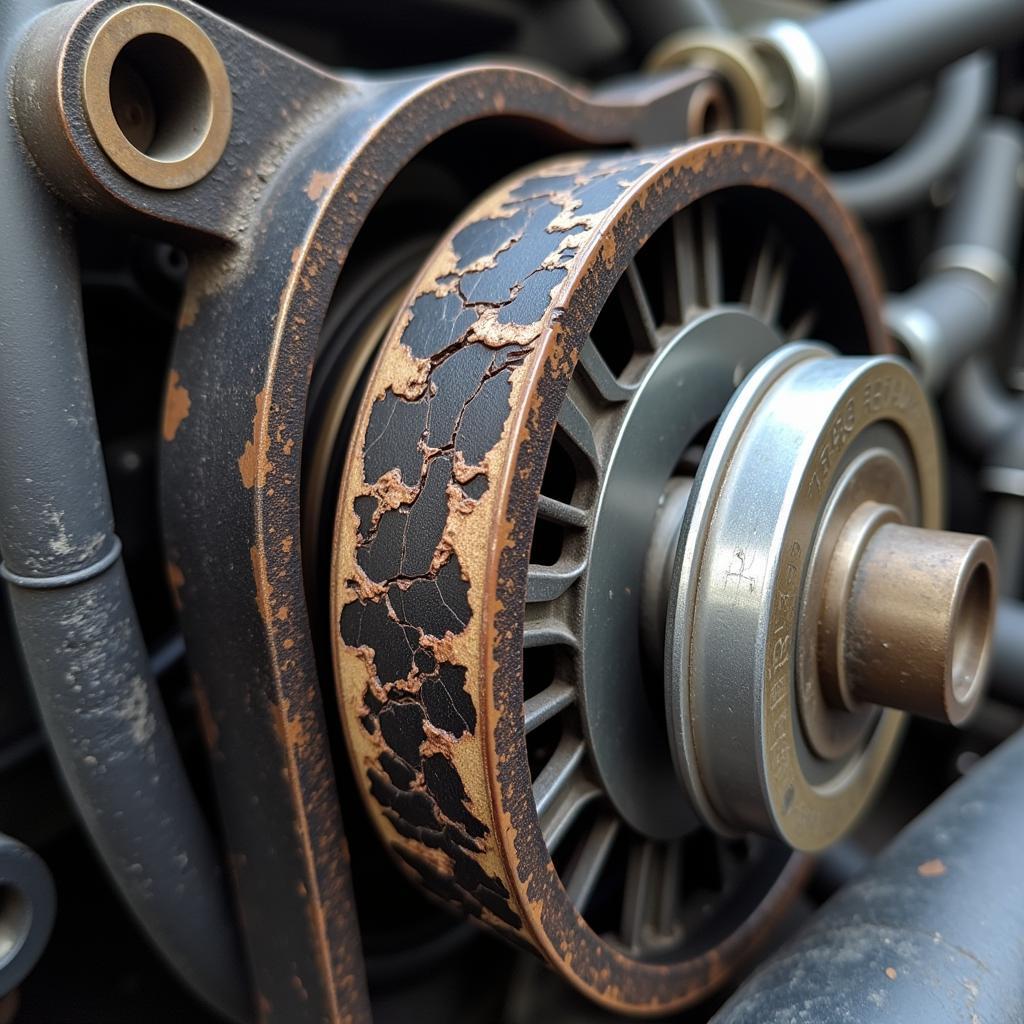Alternator Problems In Cars are a common source of frustration for drivers. This guide will help you understand, diagnose, and potentially fix these issues, saving you time and money. Whether you’re a car owner, a mechanic, or just curious about how your car works, this comprehensive guide will shed light on everything alternator-related.
Understanding the role of the alternator is crucial. It’s the heart of your car’s electrical system, recharging the battery and powering all electrical components while the engine is running. A malfunctioning alternator can lead to a variety of problems, ranging from dim headlights to a complete car shutdown. Diagnostic car problems often stem from a faulty alternator.
What Causes Alternator Problems in Cars?
Several factors can contribute to alternator problems. These include:
- Worn-out brushes: These small carbon brushes wear down over time, reducing their contact with the rotor and affecting the alternator’s ability to generate electricity.
- Bad diodes: Diodes within the alternator convert AC power to DC. If one or more fail, the alternator’s output can be reduced or completely stopped.
- Faulty voltage regulator: This component controls the voltage output of the alternator. A malfunctioning regulator can cause overcharging or undercharging of the battery.
- Belt problems: A loose or broken serpentine belt can prevent the alternator from spinning, thus stopping electricity generation.
- Bearing failure: Worn-out bearings can cause noise and eventually lead to alternator failure.
 Alternator drive belt showing signs of wear and tear
Alternator drive belt showing signs of wear and tear
“A simple visual inspection of the belt can save you a lot of trouble down the road,” says John Smith, a certified automotive technician with 20 years of experience. “Replacing a belt is a much cheaper fix than replacing a seized alternator.”
How to Diagnose Alternator Problems in Cars?
Recognizing the symptoms of a failing alternator is crucial. Some common signs include:
- Dim or flickering headlights: As the alternator fails, the headlights may become dimmer, especially at idle.
- Dashboard warning light: The battery or charging system warning light is a clear indication of a potential alternator problem. You can also experience problems with plymouths cars.
- Dead battery: A dead battery that won’t hold a charge is often a sign of a failing alternator.
- Strange noises: Whining or grinding noises from the alternator can indicate bearing problems.
- Electrical issues: Problems with power windows, radio, or other electrical accessories can point to a failing alternator.
Troubleshooting Alternator Problems: A Step-by-Step Guide
- Check the battery: Ensure the battery terminals are clean and tight.
- Inspect the serpentine belt: Look for cracks, fraying, or looseness. Replace the belt if necessary.
- Test the alternator output: Use a multimeter to check the voltage at the battery terminals with the engine running. You may find more about alternator car problem symptoms.
- Check the warning light: If the battery light is on, have the alternator tested at a local auto parts store or repair shop.
- Listen for unusual noises: Whining or grinding sounds can indicate bearing problems within the alternator.
“A multimeter is an essential tool for any DIY mechanic,” advises Maria Garcia, an electrical engineer specializing in automotive systems. “It allows you to accurately diagnose electrical problems, including those related to the alternator.”
You may be experiencing american car center problems. It’s also important to consider problems in honda cars.
How to Fix Alternator Problems in Cars?
Depending on the specific problem, fixing an alternator can involve replacing worn-out brushes, diodes, or the voltage regulator. In some cases, a complete alternator replacement might be necessary. If you are not comfortable working on your car’s electrical system, it’s best to take it to a qualified mechanic.
Conclusion
Alternator problems in cars can be a nuisance, but with a little knowledge and the right tools, you can diagnose and potentially fix these issues yourself. Remember, regular maintenance and early detection can help prevent major problems down the road. If you need assistance or have further questions, feel free to connect with us at AutoTipPro. Call us at +1 (641) 206-8880 or visit our office at 500 N St Mary’s St, San Antonio, TX 78205, United States. We’re always happy to help!






Leave a Reply